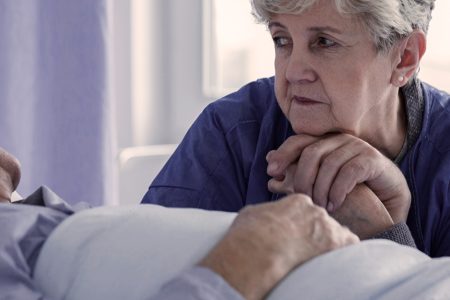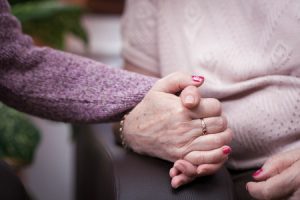Today, Voluntary Assisted Dying (VAD) is legal in NSW – 18 months after the NSW Parliament passed the Voluntary Assisted Dying Bill.
This is a historic and welcome step forward in giving terminally ill adults the right to choose to end their lives. As one terminally ill advocate said in the lead-up to the legislation being adopted – the new law brings peace of mind, choice, and one less thing to be afraid of.
NSW is the last state in Australia to introduce VAD. After years of campaigning by terminally ill people, medical experts, lawyers, and the loved ones of those who suffered greatly in their final months and days.
It is still new territory for people wishing to take up VAD, their families and health and medical professionals. Our health and medical law team answer the common questions people ask about voluntary assisted dying.
What is Voluntary Assisted Dying?
Voluntary Assisted Dying is the medical assistance provided to a person by a suitably qualified health practitioner to end their life.
Who is eligible for Voluntary Assisted Dying?
Voluntary assisted dying will not be an option for everyone in NSW. You need to be an Australian citizen or permanent resident 8 years of age or older and been living in NSW for at least 12 months.
You need to have an advanced, progressive disease, illness or medical condition that will, on the balance of probabilities, cause death within six months. If the condition is neurodegenerative, the timeframe is 12 months. Your suffering can’t be relieved in a way that you find tolerable.
To be eligible you need to be acting voluntarily and without coercion and have decision making capacity throughout the entire process.
How do I access Voluntary Assisted Dying?
You need to have two assessments by separate and independent medical practitioners who meet specific registration, experience and training requirements.
You need to initiate a first request to a medical practitioner. The request cannot be made by a substitute decision maker or included in an Advance Care Directive (living will). You may make the request verbally or in another way (i.e., by use of gestures). An interpreter can assist.
The first request must be decided within 2 days. If the first medical practitioner confirms you are eligible, they will refer you to a second medical practitioner.
If both medical practitioners confirm you are eligible, you then make a second request in writing, in front of two independent witnesses.
Before accessing voluntary assisted dying, you make a third request. There must be at least five days between the first and third requests. The doctor makes sure you are still eligible.

How is Voluntary Assisted Dying completed?
In consultation with and on the advice of the coordinating medical practitioner, you can either self-administer or have a practitioner administer a voluntary assisted dying substance.
What if I change my mind throughout the process?
You can withdraw your request at any stage.
What happens if I have decision-making capacity at the start of the Voluntary Assisted Dying (VAD) process but lose capacity before finalising my death?
You are no longer be eligible for VAD if you cease to have decision-making capacity at any stage.
How is decision-making capacity assessed?
To access Voluntary Assisted Dying (VAD), the law requires a person to have decision-making capacity. This means they must understand and remember the information, advice and matters involved in a VAD decision and its effect, as well as weigh up the factors to decide. They need to be able to communicate that decision in some way. Essentially the person needs to understand the consequences of making a VAD decision.
If a doctor suspects there are factors that could interfere with your ability to make a decision on VAD, such depression or symptoms of dementia, they must refer you to someone who has the skills and experience to assess you and make a determination. The relevant professional will depend on specific circumstances and could be a clinical psychologist, a neurologist or a geriatrician.
What about Voluntary Assisted Dying for people with dementia?
People who lack decision-making capacity, such as people suffering from dementia, or who lose decision-making capacity during the process are not eligible for voluntary assisted dying.
NSW appears to be the only state to specifically preclude access to Voluntary Assisted Dying (VAD) purely on the fact someone has dementia. Initially, a dementia patient will satisfy the decision-making capacity requirement but fail on 12-month end-of-life trajectory. By the time they are likely to die, they are unlikely to have decision-making capacity and will be denied access to VAD.
What if my family member wants Voluntary Assisted Dying but I disagree?
Anyone with sufficient and genuine interest in the rights and interests of a person can apply to the Supreme Court of NSW to make them ineligible.
You can make an application if you are concerned the person does not have decision-making capacity, or suspect the person making the request is not doing so voluntarily or is under pressure or duress.
Can any health professional provide Voluntary Assisted Dying (VAD)?
A doctor can only act as a Coordinating or Consulting Practitioner if they are a specialist with at least one year’s experience or are a general practitioner (GP) with at least 10 years’ experience. There are also provisions for overseas-trained specialists.
An Administering Practitioner must be a specialist, a GP with at least five years’ experience, an overseas-trained specialist with the appropriate registration, or a nurse practitioner.
A health professional must not initiate discussion about VAD unless it is in the context of discussing treatment options for a terminal condition.
They must have completed approved training and cannot be a family member or have financial incentive such as being the beneficiary of the patient’s Will.
What training will health professionals receive?
Participating health professionals must undergo mandatory training. The training will cover practitioners’ legal obligations, the strict eligibility criteria and how to assess whether someone meets those criteria. The legislation expressly requires training to cover how to identify signs of pressure or duress. There is scope for the Health Secretary to approve mandatory training for other health practitioners administering Voluntary Assisted Dying services.
Will my doctor be able to reject my request for Voluntary Assisted Dying based on their personal views?
Yes. There is no obligation on health practitioners to assist. Health practitioners can refuse to provide assistance due to a conscientious objection or any other reason. They can refuse to participate in any part of the process including in the request and assessment process; prescribing, supplying or administering the substance; or being present at the administration of the substance.
Does a Specialist have to be involved in the process?
No. That would present significant barriers to access in the scheme, especially in regional and remote areas. Most specialists are unlikely to have time to do the training, do not do home visits and don’t always offer timely appointments.
How easy will it be for people in rural and remote NSW to access Voluntary Assisted Dying?
As is often the case with health and medical treatments, there will be access issues for people in rural and remote areas wishing to access Voluntary Assisted Dying (VAD). Not every community has at least two practitioners. A local practitioner may object to or choose to not participate in or administer VAD, as is their right. There are very few specialists in these areas and not always GPS with 10 years’ experience. There are some provisions for overseas trained doctors who are heavily utilized by regional and remote communities.
There is also the issue that Commonwealth Criminal Code makes it an offence to ‘counsel or incite’ suicide by telephone or internet, or to provide instructions on a method of dying by suicide. Amendments need to be made to specifically state that VAD is not considered suicide (which has been done in other state’s legislation).
Why is there a longer prognosis for neurodegenerative conditions?
The six-month end-of-life trajectory does not reflect the suffering experienced in non-malignant neurodegenerative conditions, which can be intolerable closer to 12 months. The average life expectancy for people with motor neuron disease for example is two and a half years. People with motor neurone disease lose their fine motor skills relatively early in the disease and commence tube feeding and ventilation before they reach a six-month life expectancy. They can lose the physical ability to self-administer and need time to consider their options.
How does the legislation treat people living in border communities?
The legislation restricts Voluntary Assisted Dying services to people who ordinarily reside in NSW and have lived in the state for at least 12 months.
However, the legislation recognises there will be people who do not meet these requirements and would suffer unfairly if denied access. The Voluntary Assisted Dying Board will have the power to grant an exemption if a person has a substantial connection to NSW such as someone who lives close to the border and works or receives medical treatment in NSW, or is a former resident and has moved back to NSW to be closer to family for care and support for their terminal illness or other compassionate grounds.
*The material provided in our information sheets is for general knowledge only and is not a substitute for independent legal advice. For further information about the issues affecting you, please contact one of our experienced and professional health lawyers for advice tailored to your individual circumstances.




